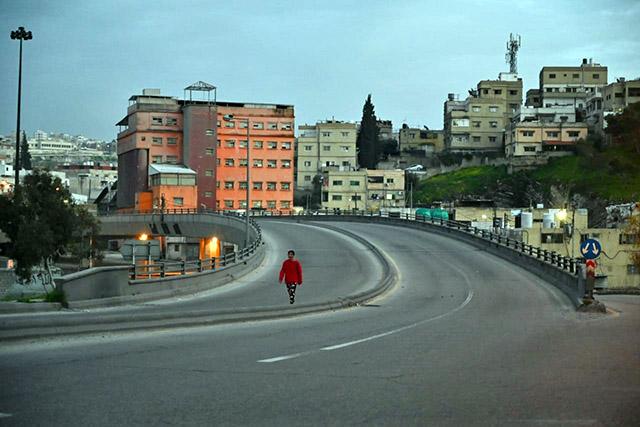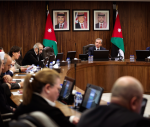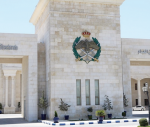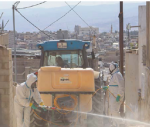You are here
Vast majority of Jordanians confident in gov’t response to COVID-19, as others voice concern
By Rana Husseini - Mar 26,2020 - Last updated at Mar 26,2020
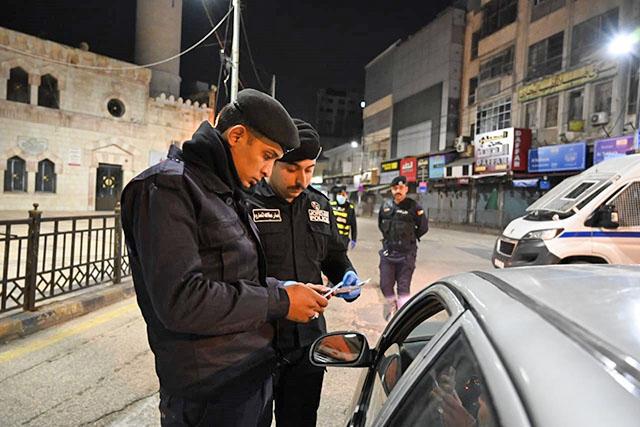
According to a recent survey by Analyseize Research, 95 per cent of Jordanians approve the government’s decision to halt daily public life and its instructions for people to stay at home for the time being (Photo by Amjad Ghsoun)
AMMAN — Over 95 per cent of Jordanians believe that the government’s measures to tackle the coronavirus crisis in the Kingdom are “heading in the right direction”, according to a recent survey.
Furthermore, 95 per cent of those surveyed approved the government’s decision to halt daily public life and its instructions for people to stay at home for the time being.
These findings were revealed on Thursday in a survey conducted by Analyseize Research, covering the entire Kingdom and fielding the opinions of 8,400 respondents aged between 18 and 70, who were questionedabout the procedures adopted by the government on March 23 and 24 to stop the spread of the coronavirus.
The survey also revealed that 92 per cent of the respondents are confident in the responsibility assumed by the government to address this problem and “have faith that the government is capable of ending the COVID-19 crisis”.
Political activist Omar Atout praised “the swift and decisive decisions by the government that were obviously in favour of people’s health and interest”.
“In general, for the first time since the government of Omar Razzaz was sworn in, the government won the trust of people in dealing with this file, and I support all its procedures and decisions,” Atout told The Jordan Times.
Atout, who is also a lawyer, added that “the government also handled the media portfolio in a “professional and transparent manner”, which gave it more credibility and appreciation by the people”.
“I believe this is the first time since 1993 that we see a different and new approach by the government, which displayed transparency by guaranteeing the flow of information to the people on a regular basis, and at the same time was ready to back off of any decision when they realised that it was not in the people’s interest,” said Atout.
Activist Hania Barqawi agreed with Atout, saying: “I used to think that the government’s main problem was the lack of providing available information to the people”.
“For the first time, I see the government adopting a good media approach through the style, facts, language and transparency, and this gives us a feeling that there is a synergy between different governmental and security entities,” Barqawi said.
She told The Jordan Times that, regardless of whether the government’s decisions are right or wrong, “ in times of crisis, we all need to be true and national activists and support the government’s decisions”.
“As an activist who is not fond of the government and has many reservations, I can say that this is an acceptable performance for Razzaz during this crisis. There is no space for opposition at a time of crisis, and we do not have any choice but to follow the instructions of the government,” Barqawi added.
However, she said, “the inconsistency in some government decisions is creating confusion among the people; especially decisions related to daily needs”.
“The government is not sticking to some of its decisions, especially ones related to opening and closing grocery stores that sell or deliver food and other essential commodities, and this has left many families with few resources,” Barqawi stressed.
The survey also stated that 84 per cent of respondents indicated their willingness to abide by the curfew regardless of its length, while 59 per cent of those surveyed said that “people are taking the curfew orders very seriously”.
However, chartered accountant Bishr Bakr said: “There are important aspects that the government is failing to address during this crisis”.
“Although the government is exerting a lot of effort to handle this problem, I feel there are some hasty and unstudied decisions being taken at the spur of the moment without considering what will happen in the future,” Bakr told The Jordan Times.
For example, Bakr said, “no one is talking about the economic consequences that will occur as a result of the government’s decisions to shut down many entities and what will happen to many employees in these entities when life is back to normal”.
“We realise that the health of people is extremely important but the news of the coronavirus has been circulating in the media for almost two months and the government took hasty decisions that are not in favour of several sectors. The problem is that they are not addressing these concerns,” Bakr said.
On social media, the majority of users supported the recent government decisions regarding the curfew and other measures.
In reaction to the survey, user Aiman Alhussami wrote on Facebook: “I have full confidence in the government, but I do not have a lot of confidence in the people because some people are not abiding by the government’s regulations.”
Najah Al Bashir also said that she is “completely confident” in the government because “it has proved that it is really concerned about people’s well-being”.
But Mohammad Khalid had a different opinion, as he expressed on Facebook: “What is the confidence that people are talking about? There are some people who are really suffering because of the government's unstudied decisions, such as people who own farms of cows and sheep but are unable to reach them to feed them because of the imposed curfew.”
As for the psychological and emotional state of Jordanians in general during these times, 53 per cent of survey respondents claimed to be worried and afraid of COVID-19 and 33 per cent felt that they “had no control over their lives”.
“Better implementation of curfew measures and better control of the containment of the virus” in the Kingdom has also affected people’s morale, the study said, noting that 80 per cent of respondents feel “optimistic” about the future.
Regarding how Jordanians are getting information about the pandemic, 72 per cent of respondents indicated that they are obtaining information from Facebook, 57 per cent from TV sources and 33 per cent from webpages.
While confined to their homes, people have been mainly spending their time browsing the Internet (65 per cent) and watching the news on TV (48 per cent), the survey noted.
Other activities during the curfew include working remotely from home at 27 per cent, cooking at 21 per cent and entertainment, such as movies and television series, at 19 per cent. Eighteen per cent of respondents said that they are spending time relaxing, while 17 per cent are homeschooling their children, according to the survey.
Related Articles
AMMAN — Poll results on how citizens view the government’s Covid-19 measures one month into the epidemic revealed that an overwhelming major
AMMAN — A new law that will come to force within 30 days obliges both private and public sector establishments employing between 25 and 50 w
AMMAN — A total of 91 per cent of Jordanians believe that the Kingdom is “on the right track” in regard to the government’s procedures in de



